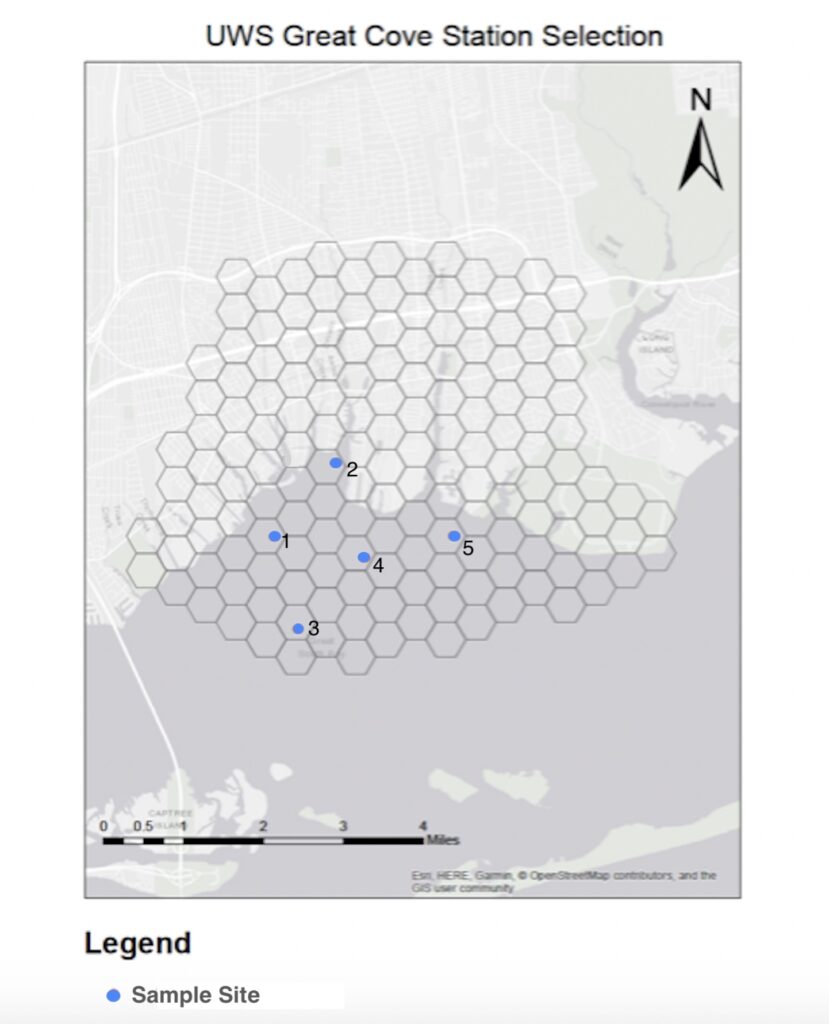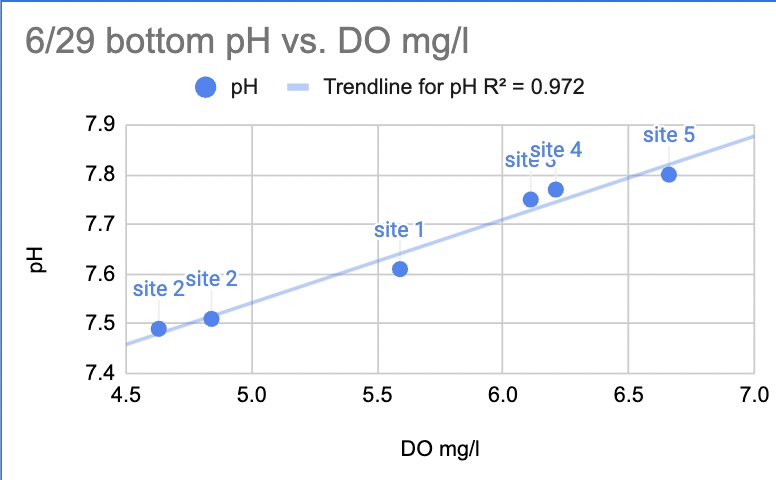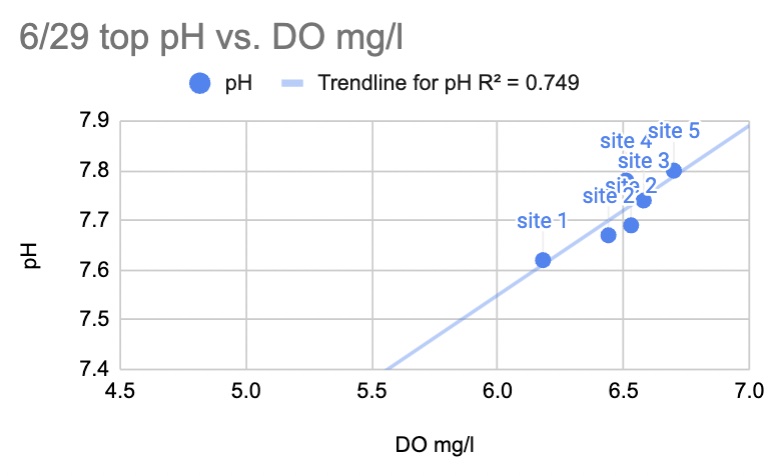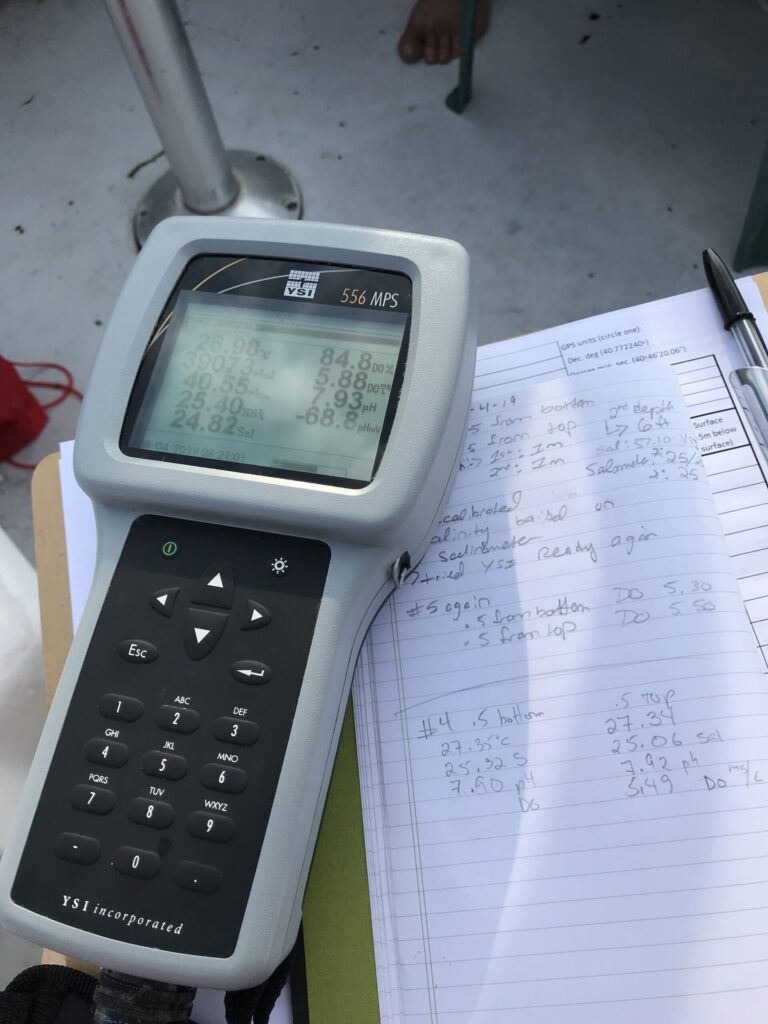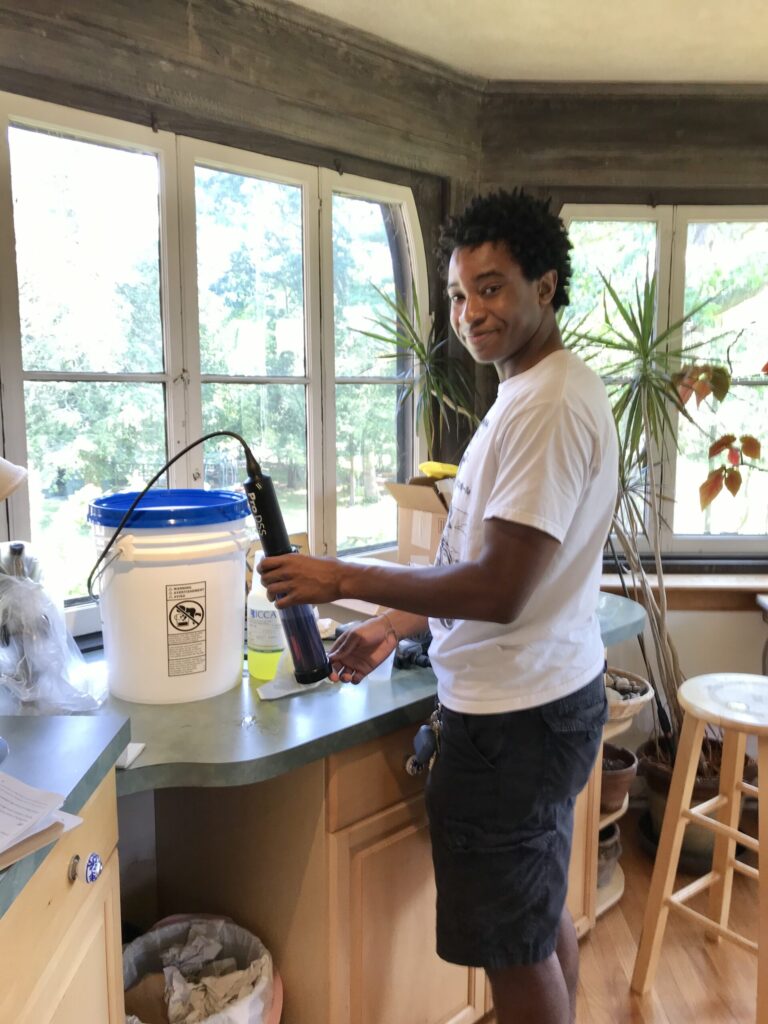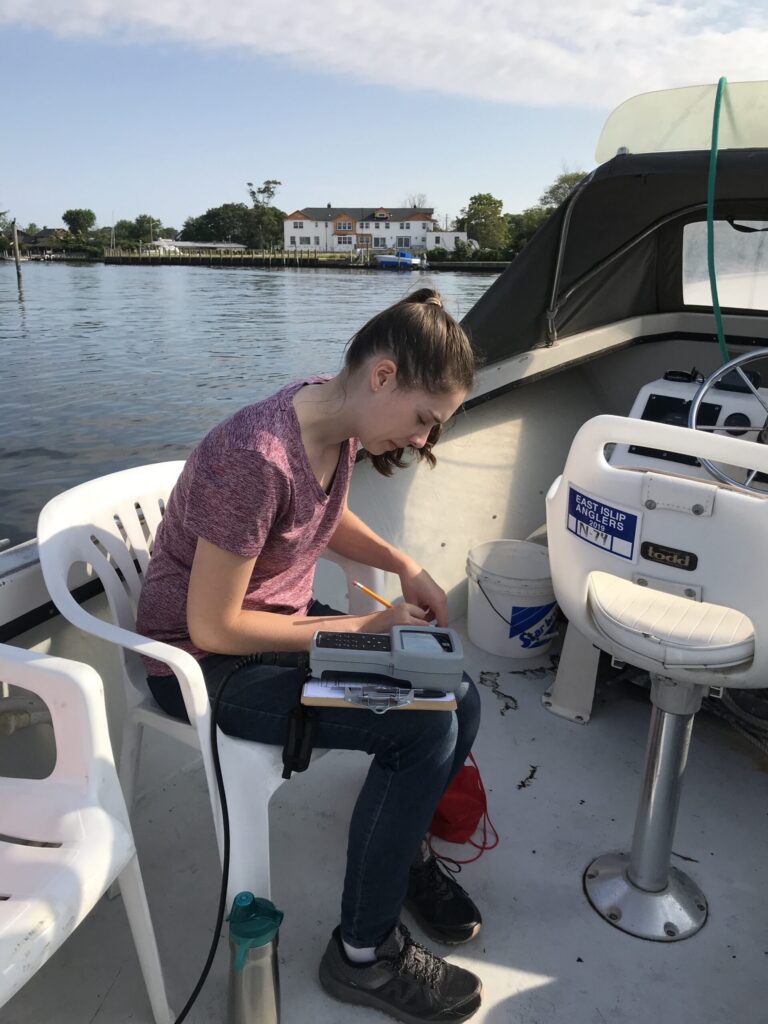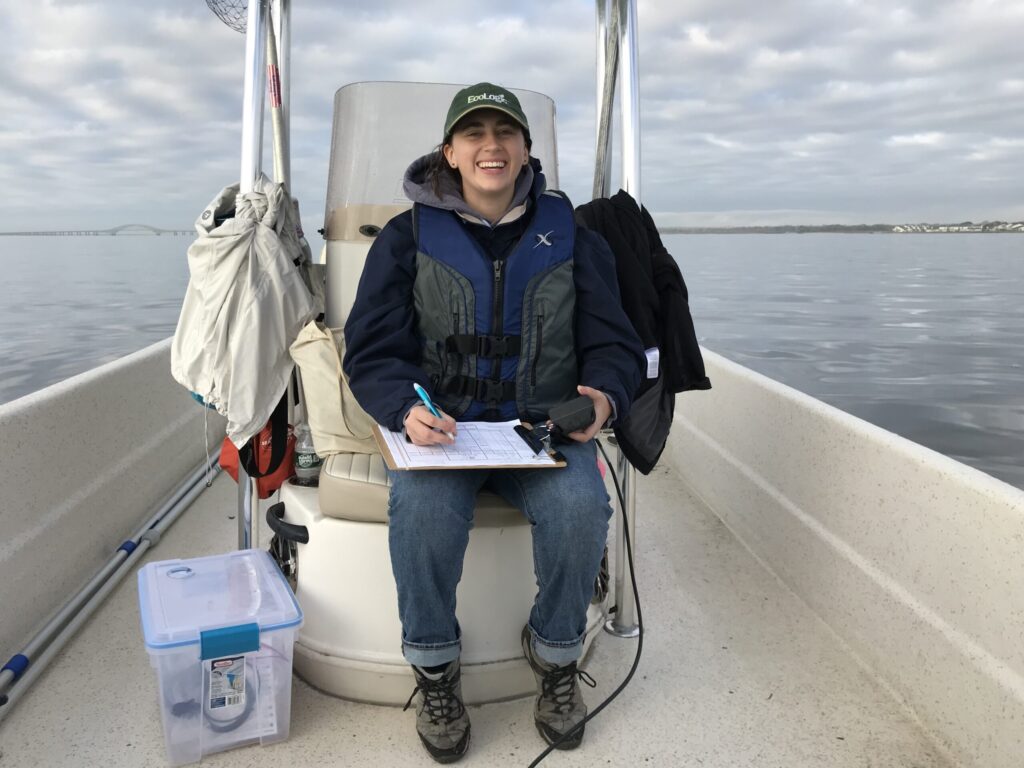Great South Bay Water Quality
Unified Water Study In The Great South Bay
Monitoring our local waterways has proved to be an extremely vital task as we are seeing the effects of eutrophication and coastal acidification. Eutrophication refers to the excessive growth of algae and plankton due to high concentrations of nutrients such as nitrates and phosphates. This nutrient loading often stems from runoff that contains sewage, fertilizers, or other pollutants. When the overabundance of algae and plant matter decompose, we can see an increase in carbon dioxide and a decrease in oxygen and pH in our waterways. This is known as coastal acidification. This process affects the health of our waterways and the animals in them. Lowering the pH is especially dangerous to marine organisms that have calcium carbonate shells, as a more acidic environment can actually cause their shells or structures to dissolve.
In order to monitor these changes and learn more about their effects we have been engaging in a Unified Water Study located in the Great South Bay. This standardized approach originated in the Long Island Sound, where many different environmental groups collaborated to assess water quality using the same protocol in order to create a wealth of comparable data. Following their model, we are focusing our efforts into measuring from five sample stations located in The Great Cove. Using our standardized procedure we have been able to collect valuable measurements regarding temperature, pH, salinity, dissolved oxygen, conductivity and more since 2019. Our raw data can be found below.
2019 Raw Data (Archived)
2023 Raw Data
Our Maps and Relevant Plots
